Mar 16, 2016 | Focolare Worldwide, Senza categoria
“This soiree should have been held here three months ago. Instead, the folly of men changed our direction.” These were the opening words of Noufissa Boulif, Muslim, organiser of the event: after the attack in Paris on 13 November 2015, Brussels lost its identity. This is where some of the terrorists involved were based, and for security reasons the concert had been cancelled and moved to 20 February 2016. The encounter between music, and Muslim and Christian cultures, became a platform for the encounter between Muslims, Christians and also agnostics who believe in dialogue and who, knowing they were welcome, were able to receive the others and discover their hidden qualities and values. But wasn’t it highly risky, for an Islamic-Christian event right in the heart of Brussels? We asked Noufissa.”If the concert was able to go through, it was thanks to the incredible solidarity between Muslims and Christians, and certainly due to divine protection. Luckily the entire programme came about without accidents or tensions.” The concert was dedicated to all the children who suffer, giving the soiree the theme «of children and the youth, but also under the auspices of diversity which characterises our country.» For more than 20 years, Noufissa has known and lived Chiara Lubich’s spirituality of unity. She wants to testify before all that fraternity between Christians and Muslims, often antagonists, is possible. In this perspective she organized the first Islam-Christina concert in October 2014. https://vimeo.com/114676421 “I have been working on it for a long time”, Noufissa recounted. “Together with my husband and children, we are involved in interreligious dialogue, which has by now become part of my life. For me, as a Muslim wearing a veil, living in harmony with others is not to be taken for granted, because I feel that people look at you with curiosity or evident signs of diffidence. But every time, I try to approach them without prejudice, and with a smile. The Golden Rule which all great religions advocate, helps me a lot. “None of you really believes if you do not wish for your neighbor what you wish for yourself” (Mohammed, Hadith 13 de al-Nawawi). The islamophobic reactions and influence of the mass media are not always constructive or comprehensible, but the essential thing is to overcome them. The prophet, Mohammed, in a hadith stresses that “A smile is an alm” (meaning, a free gift for the other).” Going back to 20 February this year. Various choirs appeared on stage: children, youth, Christians and Muslims, blacks and whites. Speaking Neerlandish or French – also this is one of Belgium’s challenges, the participants were Rissala, the small choir singers, the voices of the dei 4 Horizons, and the ‘TOUCH,’ a group of disabled Muslim girls. Towards the end, also the rappers – Mc ‘Youns, and Antis et Mamz-I – with their incisive words, invited everyone not to give up, but to continue believing in life. The “light of the heart” association was formed after 25 years of Noufissa’s interreligious dialogues, and 10 years of the service of one of her Muslim friends involved in palliative treatments: together they visit the sick at their homes, trying to meet the thirst for relationships in their particular phases of life. With this association, after a year of hard work to prepare “Fraternity choir,” they are already working on a next Islam-Christian event to be held on 23 April entitled, “Together with Mary,” in the Saint Michel Cathedral in Brussels.
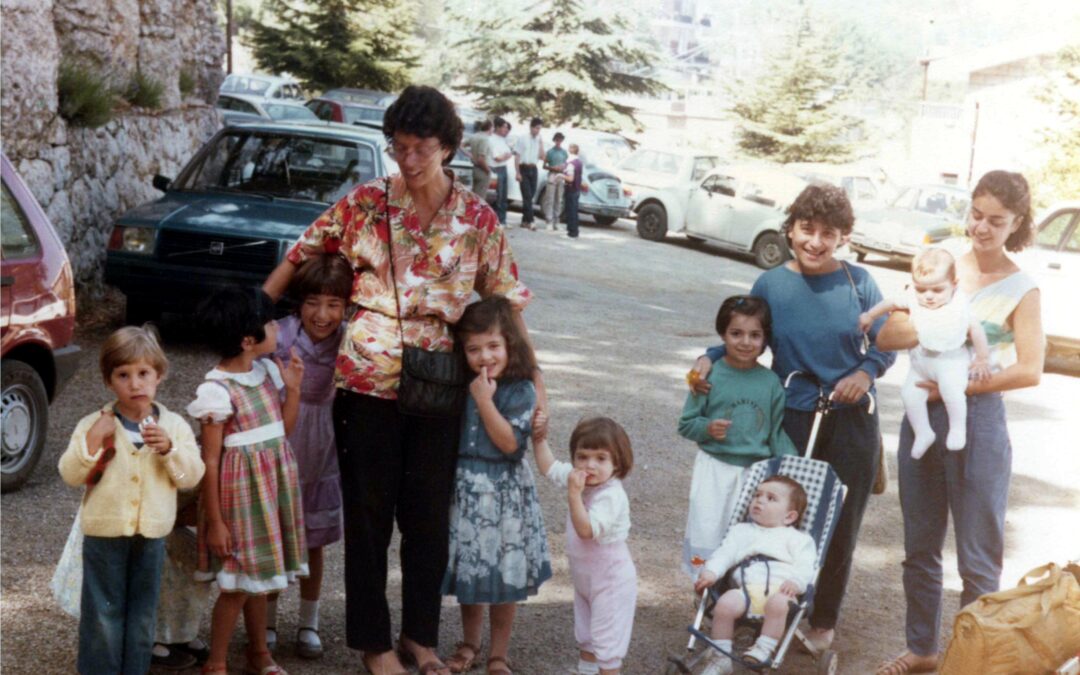
Mar 15, 2016 | Non categorizzato
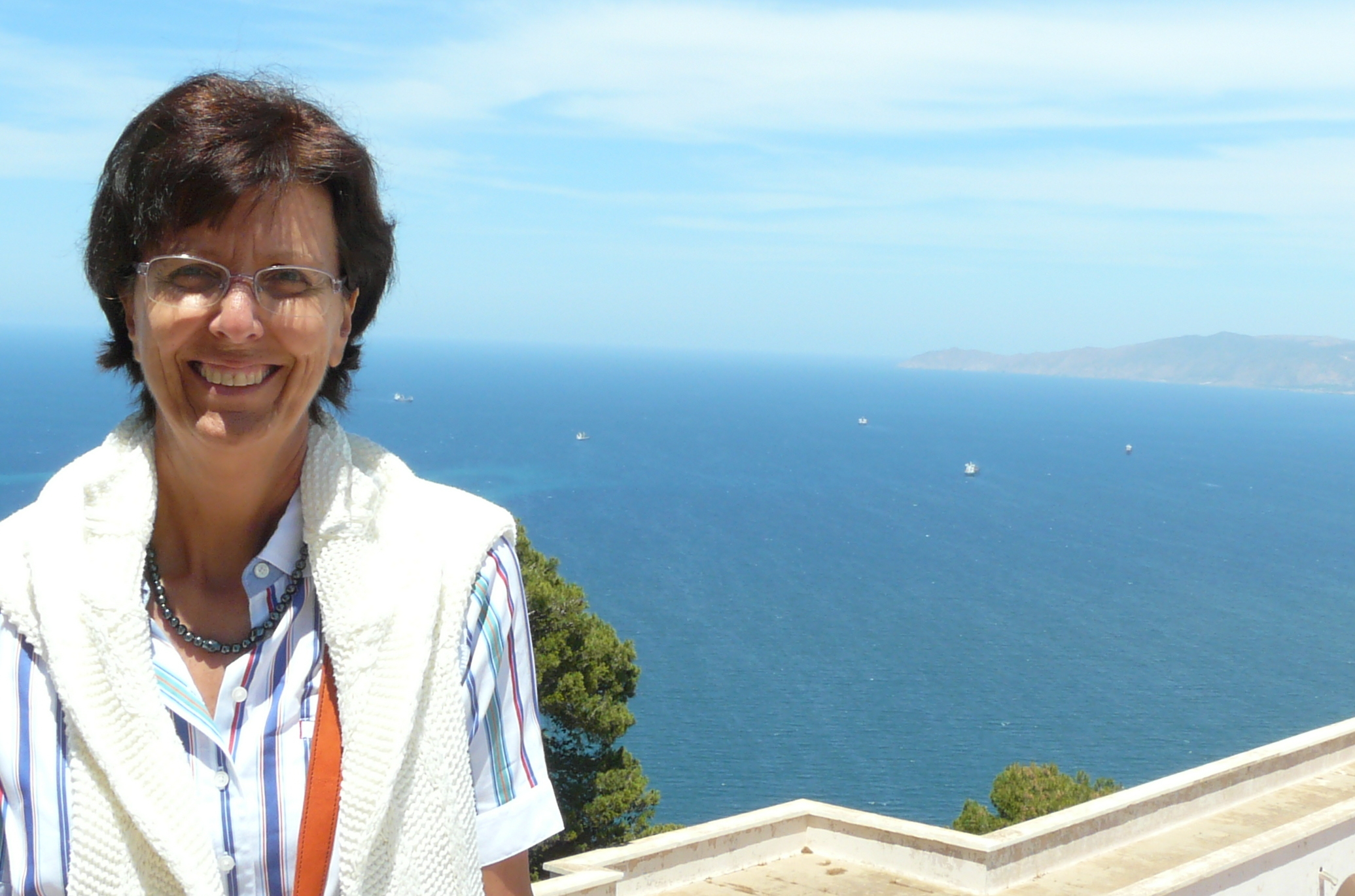 “I was 17 years old,” says Lebanese focolarina Nadine, “when the war broke out in Lebanon: schools closed, roads mined, bombings day and night, snipers, the dead and wounded. . . In the midst of the tragedies that had begun to enrage our country, me and some other young people that had been fascinated by the spirituality of Chiara Lubich heard those words from the early days of the Focolare echoing again: “Everything crumbles, only God remains.” Like Chiara and the first focolarine, we could have been dead from one moment to the next, and like them we wanted to present ourselves before God ‘having loved to the end’. We had learned that loving means being attentive to the needs of the people around us. It wasn’t so easy under such circumstances, but when we were able to do it our hearts were cleared of fear and we hardly noticed the storm of hatred and violence that surrounded us. Therefore we were able to help many people carry on. We often wrote to Chiara, to tell her how we were living and every time she wrote back personally” “I still remember the acts of violence and kidnappings when the religious discrimination began. My own father was kidnapped twice. Chiara spoke to us of the first Christians and their courage in giving witness to the faith even in the face of Roman persecution. One of our friends, Fouad, was able to attend a Gen convention Italy. During his return trip to Lebanon, while he was travelling on the road from the airport, Fouad was stopped by some armed men. It was a Muslim region and his documents showed that he was a Maronite Christian. “Yes, I’m Christian,” Fouad admitted. “I’m on my way home.” “You’re coming with us,” they told him. A long interrogation followed and the final sentence: “Do you understand what awaits you?” The boy understood that it was all over for him. One of the militiamen took him and led him towards a bridge where many other Christians had been killed. While they walked, he tried to calm himself and wondered what God might want of him in that moment. ‘Love this neighbour,’ came to his mind. So he tried to make that militiaman feel all his love: ‘It must be hard,’ Fouad said to him, ‘it must be hard to do this job, to make war.’ When they came within eyeshot of the bridge the militiaman stopped, looked at him and exclaimed: ‘Let’s go back’. I recall how moved Chiara was by the witness of this young man, so moved that she wanted this episode to be shared for the edification of the whole Movement.”
“I was 17 years old,” says Lebanese focolarina Nadine, “when the war broke out in Lebanon: schools closed, roads mined, bombings day and night, snipers, the dead and wounded. . . In the midst of the tragedies that had begun to enrage our country, me and some other young people that had been fascinated by the spirituality of Chiara Lubich heard those words from the early days of the Focolare echoing again: “Everything crumbles, only God remains.” Like Chiara and the first focolarine, we could have been dead from one moment to the next, and like them we wanted to present ourselves before God ‘having loved to the end’. We had learned that loving means being attentive to the needs of the people around us. It wasn’t so easy under such circumstances, but when we were able to do it our hearts were cleared of fear and we hardly noticed the storm of hatred and violence that surrounded us. Therefore we were able to help many people carry on. We often wrote to Chiara, to tell her how we were living and every time she wrote back personally” “I still remember the acts of violence and kidnappings when the religious discrimination began. My own father was kidnapped twice. Chiara spoke to us of the first Christians and their courage in giving witness to the faith even in the face of Roman persecution. One of our friends, Fouad, was able to attend a Gen convention Italy. During his return trip to Lebanon, while he was travelling on the road from the airport, Fouad was stopped by some armed men. It was a Muslim region and his documents showed that he was a Maronite Christian. “Yes, I’m Christian,” Fouad admitted. “I’m on my way home.” “You’re coming with us,” they told him. A long interrogation followed and the final sentence: “Do you understand what awaits you?” The boy understood that it was all over for him. One of the militiamen took him and led him towards a bridge where many other Christians had been killed. While they walked, he tried to calm himself and wondered what God might want of him in that moment. ‘Love this neighbour,’ came to his mind. So he tried to make that militiaman feel all his love: ‘It must be hard,’ Fouad said to him, ‘it must be hard to do this job, to make war.’ When they came within eyeshot of the bridge the militiaman stopped, looked at him and exclaimed: ‘Let’s go back’. I recall how moved Chiara was by the witness of this young man, so moved that she wanted this episode to be shared for the edification of the whole Movement.” 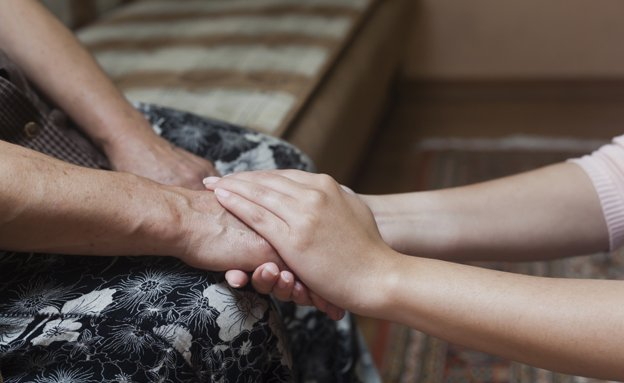 “At every ceasefire we’d gather together to visit the focolare. . . Our parents were fearful for us, but we couldn’t stop ourselves. Forging unity with one another was the life force that sent us forth to love everyone. It was precisely during those years of war that many of us felt the call to consecrate our lives to God. Chiara supported us with her example, with her words. With love, she kept track of the families that were being sorely tried by the restricitons and tiredness. . . Several had lost their jobs, their houses. Others had been living in air-raid shelters for years and wanted to leave the country so that their children could have a future, several of whom were wounded. . . For each one of these families, Chiara opened the homes of the Movement to provide them a place to go and recover or to settle down permanently. She also launched a fundraising campaign to cover the costs of the journey. Since the airport of Beirut had been closed for years, she sent us focolarine to open a focolare in Cyprus – the only way out by sea – to assist those who were leaving the country.”
“At every ceasefire we’d gather together to visit the focolare. . . Our parents were fearful for us, but we couldn’t stop ourselves. Forging unity with one another was the life force that sent us forth to love everyone. It was precisely during those years of war that many of us felt the call to consecrate our lives to God. Chiara supported us with her example, with her words. With love, she kept track of the families that were being sorely tried by the restricitons and tiredness. . . Several had lost their jobs, their houses. Others had been living in air-raid shelters for years and wanted to leave the country so that their children could have a future, several of whom were wounded. . . For each one of these families, Chiara opened the homes of the Movement to provide them a place to go and recover or to settle down permanently. She also launched a fundraising campaign to cover the costs of the journey. Since the airport of Beirut had been closed for years, she sent us focolarine to open a focolare in Cyprus – the only way out by sea – to assist those who were leaving the country.” 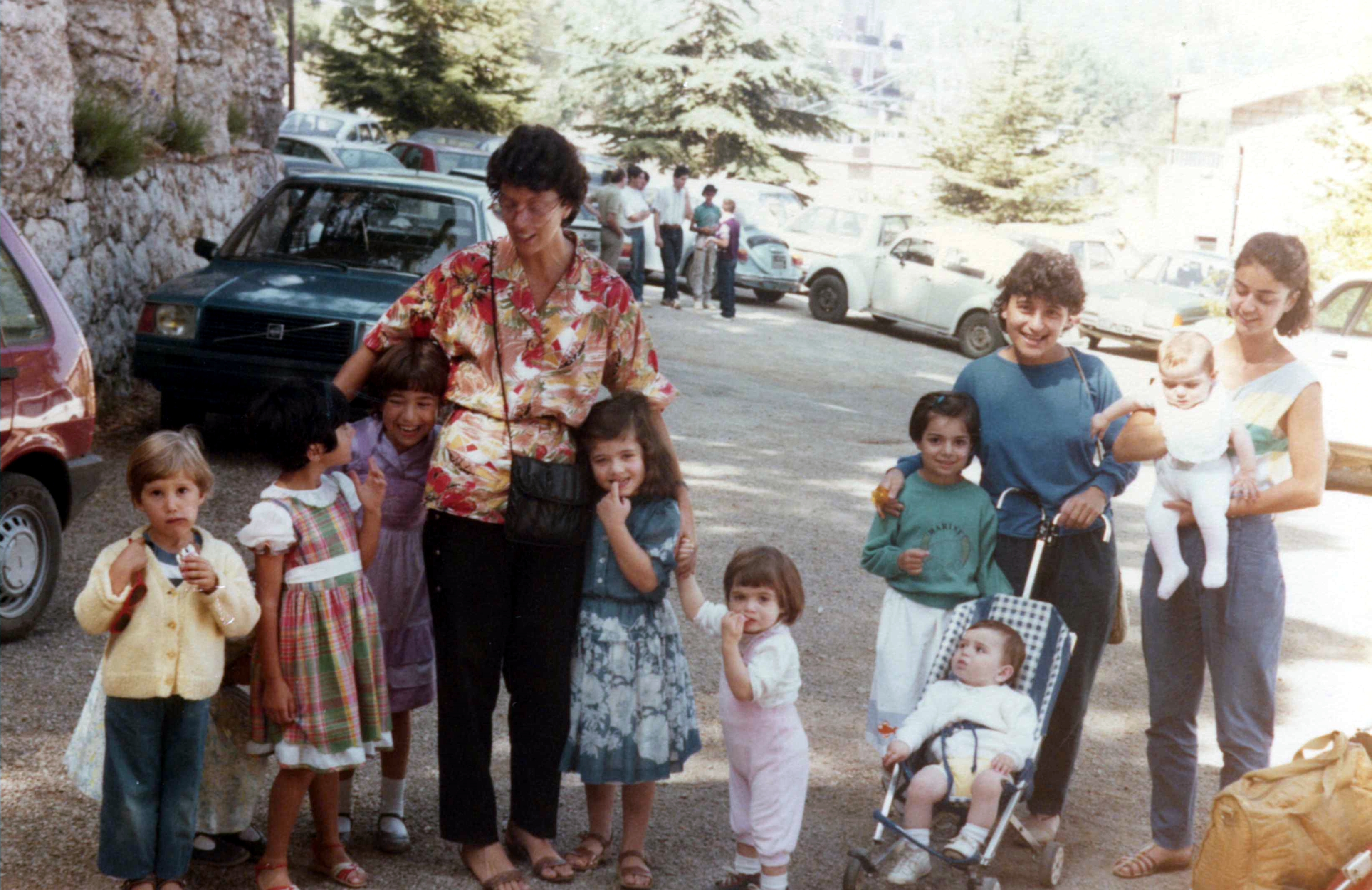 “Chiara’s concrete love was always accompanied by her powerful spiritual encouragements. After years of living life to the extreme we often felt weak, tired and helpless. So Chiara reminded us of that ‘little cloud’ a new sign with which God had made himself present to the Jewish people in the desert when they were suffering through an absurd war, and she suggested that we go ahead in living the Word in a totally new way. And from that ‘little cloud’,” she went on to tell us, “not only will you draw many others into living the Gospel, but you’ll draw out the strength you need to continue loving. . .all the way to the end.”
“Chiara’s concrete love was always accompanied by her powerful spiritual encouragements. After years of living life to the extreme we often felt weak, tired and helpless. So Chiara reminded us of that ‘little cloud’ a new sign with which God had made himself present to the Jewish people in the desert when they were suffering through an absurd war, and she suggested that we go ahead in living the Word in a totally new way. And from that ‘little cloud’,” she went on to tell us, “not only will you draw many others into living the Gospel, but you’ll draw out the strength you need to continue loving. . .all the way to the end.”
Mar 14, 2016 | Focolare Worldwide
Mar 14, 2016 | Focolare Worldwide
Mar 14, 2016 | Focolare Worldwide
Mar 14, 2016 | Non categorizzato
Mar 14, 2016 | Non categorizzato
Mar 14, 2016 | Focolare Worldwide
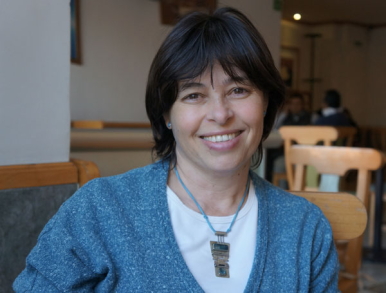
Mar 14, 2016 | Focolare Worldwide

Cristina Montoya
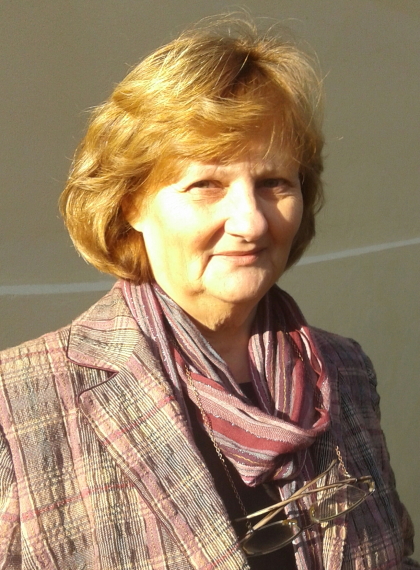
Mar 14, 2016 | Focolare Worldwide
With the fall of the Berlin Wall everything seemed resolved. No one imagined that the walls of mistrust, hatred and prejudice stood on in the former Yugoslavia, impeding what for so many years the Focolare communities had been trying to build: unity among all, differences of differences ethnicity, language and religion. They saw the diversity as enrichment. The announcement of the conflict was a real shock to them, but also an incentive to continue believing that despite the absurdity of fratricidal war, God’s love had not diminshed.  Minka Fabjan, expert in administration and active in the field of the Economy of Communion, reports on behalf of the community in Zagabria: “It was August 1991 and, amidst a thousand hardships, a group of us went to Katowice, Poland, because we learned that Chiara Lubich was going to be there. She invited us to testify to the Gospel in every possible way, to ‘shout it from the rooftops’. There were already the first rumblings of war in Croatia: closed schools, blocked highways . . . Amidst winds of war, it was striking to hear our messages of peace which, at the urging of Chiara, we sent to various public broadcasters. Nevertheless, her messages became more intense: “Demonstrate with your life that love conquers all.” She had been the one to suggest that we collect signatures for peace: “in schools, in front of churches, on public squares, in Slovenia, Serbia and everywhere. Because of the air raids, in Croatia we even gathered signatures in the air raid shelters. Within a few days we sent them off to several Heads of State, 65,000 signatures.” “Meanwhile our houses filled up with refugees: they were relatives and friends, but also strangers. Therefore, Chiara invited the Movement around the world to become involved in sending help. The first truckload arrived in autumn. It contained foodstuffs and basic necessities, and that continued for years. Red Cross centres, conference halls, houses in the middle of construction and cellars were transformed into storerooms, so that the goods could be shared with neighbours and refugees both Serbian, Muslim and Christian. We prepared up to 300 packages a day. With this humanitarian aid we managed to provide relgular help to 7000 people.” “We were already feeling tired when, in 1993, Pope John Paul II asked us to open our hearts and homes to the Bosnian women who were arriving from Zagabria, following the unspeakable cruelties suffered in the camps. We felt like Chiara was beside us and so we all got to work. During the 1993 Familyfest, we launched a fundraising campaign that allowed us to give homes to 50 refugee families and to help more than 150 women. Through adoption at a distance, thousands of children were provided for. Several rape victims found the heroic strength to carry the pregnancy to term. In Serbia 700 men – including members of the Movement – were drafted into the federal army. When Chiara heard of it she invited all of us to pray for them, that they would find the courage to oppose violence and not fire their weapons. And those prayers were quickly answered because all of our men were given civil service duties.” The war had also involved Kosovo and Belgrade. Nevertheless, Chiara wanted to visit an area near Croatia. When Večernji list journalist, Ottone Novosel, asked her if she had any words for the people, Chiara didn’t hesitate: “Show that the miracle of unity is possible even among different ways of thinking, different ethnic groups, and different religions. This war could provoke another reaction, a great flowing of love that could become a model for many other populations. God is the one who guides history ” (April 12, 1999). Her words continue to be timely as we consider the many conflicts that still plague our planet and dishonour our common humanity.
Minka Fabjan, expert in administration and active in the field of the Economy of Communion, reports on behalf of the community in Zagabria: “It was August 1991 and, amidst a thousand hardships, a group of us went to Katowice, Poland, because we learned that Chiara Lubich was going to be there. She invited us to testify to the Gospel in every possible way, to ‘shout it from the rooftops’. There were already the first rumblings of war in Croatia: closed schools, blocked highways . . . Amidst winds of war, it was striking to hear our messages of peace which, at the urging of Chiara, we sent to various public broadcasters. Nevertheless, her messages became more intense: “Demonstrate with your life that love conquers all.” She had been the one to suggest that we collect signatures for peace: “in schools, in front of churches, on public squares, in Slovenia, Serbia and everywhere. Because of the air raids, in Croatia we even gathered signatures in the air raid shelters. Within a few days we sent them off to several Heads of State, 65,000 signatures.” “Meanwhile our houses filled up with refugees: they were relatives and friends, but also strangers. Therefore, Chiara invited the Movement around the world to become involved in sending help. The first truckload arrived in autumn. It contained foodstuffs and basic necessities, and that continued for years. Red Cross centres, conference halls, houses in the middle of construction and cellars were transformed into storerooms, so that the goods could be shared with neighbours and refugees both Serbian, Muslim and Christian. We prepared up to 300 packages a day. With this humanitarian aid we managed to provide relgular help to 7000 people.” “We were already feeling tired when, in 1993, Pope John Paul II asked us to open our hearts and homes to the Bosnian women who were arriving from Zagabria, following the unspeakable cruelties suffered in the camps. We felt like Chiara was beside us and so we all got to work. During the 1993 Familyfest, we launched a fundraising campaign that allowed us to give homes to 50 refugee families and to help more than 150 women. Through adoption at a distance, thousands of children were provided for. Several rape victims found the heroic strength to carry the pregnancy to term. In Serbia 700 men – including members of the Movement – were drafted into the federal army. When Chiara heard of it she invited all of us to pray for them, that they would find the courage to oppose violence and not fire their weapons. And those prayers were quickly answered because all of our men were given civil service duties.” The war had also involved Kosovo and Belgrade. Nevertheless, Chiara wanted to visit an area near Croatia. When Večernji list journalist, Ottone Novosel, asked her if she had any words for the people, Chiara didn’t hesitate: “Show that the miracle of unity is possible even among different ways of thinking, different ethnic groups, and different religions. This war could provoke another reaction, a great flowing of love that could become a model for many other populations. God is the one who guides history ” (April 12, 1999). Her words continue to be timely as we consider the many conflicts that still plague our planet and dishonour our common humanity.






